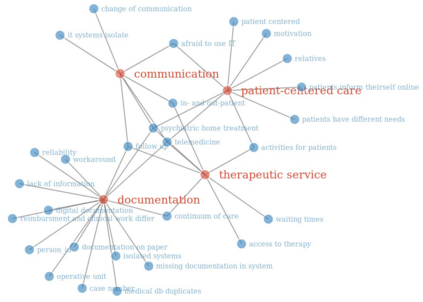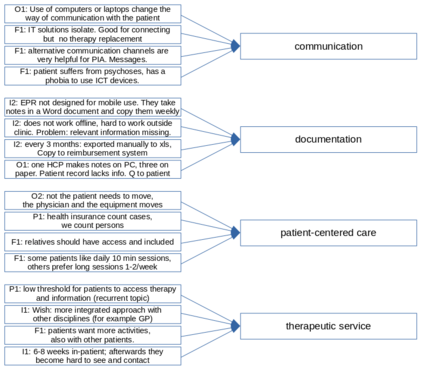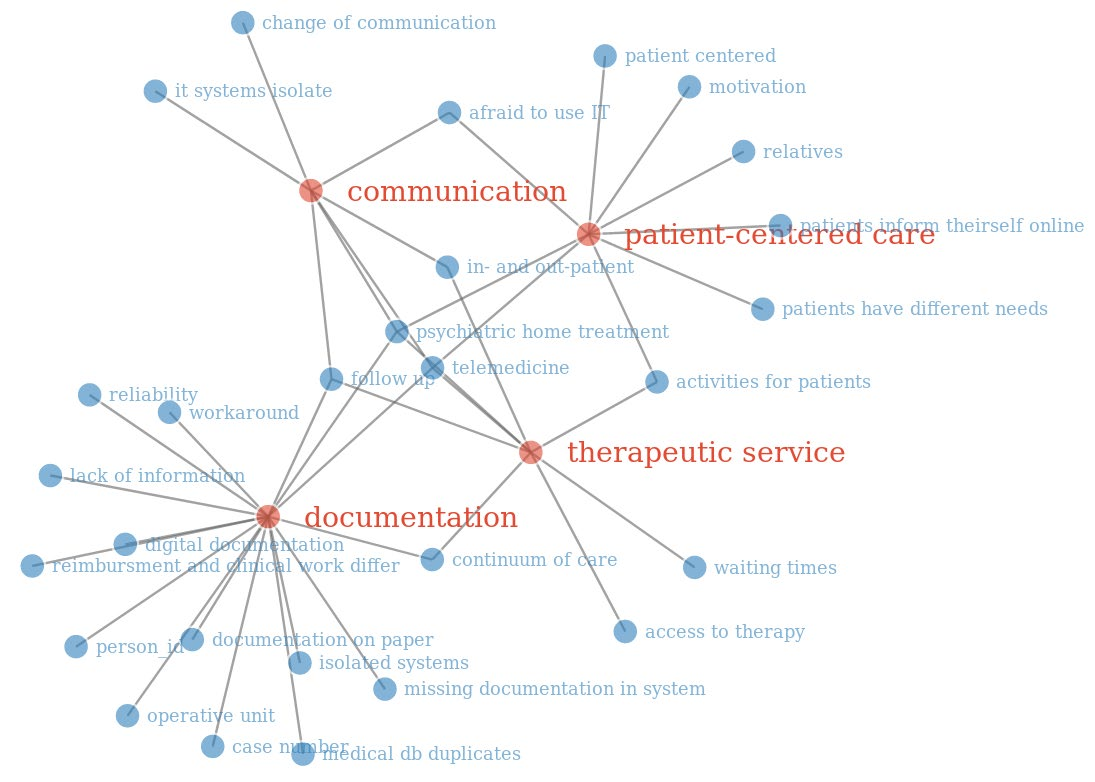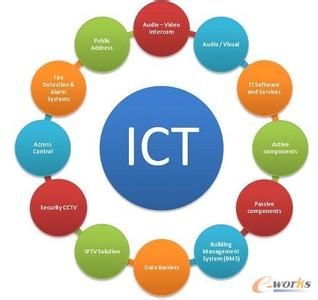The use of information and communication technologies (ICT) to support long-term care is gaining attention, also in the light of population ageing. Known in Scandinavian countries under the term of welfare technology, it aims to increase the quality of life and independence of people with physical, psychological or social impairments. In Germany, a new form of psychiatric home treatment, inpatient equivalent treatment (IET), is offered since 2018. It should allow service users with severe mental health issues to stay in their familiar environment during crisis, while being treated in the same complexity and flexibility like in an inpatient unit. However, this change in delivering healthcare services leads to sociotechnical challenges, such as coordination of work, integration into existing healthcare workflows and ensuring continuity of care. Hence, the objective of this exploratory study is to examine how information and communication technologies (ICT) interact in the new setting and how this process can be improved. Further, we also ask how service users can participate in designing home treatment services. Methodologically, this study follows a qualitative research approach. Different methods including participant observation, interviews and focus groups were conducted to answer the research questions. Data was collected during a field visit at the psychiatric department of a German clinic in summer 2019. Field notes and interviews were analyzed using the R package for qualitative data analysis RQDA. A list of socio-technical challenges and opportunities related to IET were identified. New forms of communication, gaps in documentation practices and continuity of care are seen to be highly relevant for designing and implementing home treatment services in psychiatric care. We also discuss how service users and health professionals can take pro-active part in designing these services.
翻译:在斯堪的纳维亚国家,根据福利技术,它的目标是提高身体、心理或社会有缺陷的人的生活质量和独立性。在德国,自2018年以来提供了一种新的心理家庭治疗形式,即住院等效治疗(IET),它应该允许有严重心理健康问题的服务用户在危机期间留在熟悉的环境中,同时得到与住院病人一样的复杂和灵活性的治疗。然而,提供保健服务方面的这种变化导致社会技术挑战,例如工作协调、融入现有的保健工作流程和确保护理的连续性。因此,这项探索性研究的目的是审查信息和通信(ICT)技术在新环境中如何互动以及如何能够改进这一进程。此外,我们还询问服务用户如何在设计家庭治疗服务时参与。从方法上讲,这项研究遵循质量研究方法,进行了不同的方法,包括参与者观察、访谈和重点小组来回答研究问题。在一次实地访问中收集的数据,在为期2019年的R-DA高级诊所服务用户的高质量分析中,关于实施R-A的实地分析,关于为2019年期德国高级临床服务用户提供的高质量分析。
相关内容
Source: Apple - iOS 8








